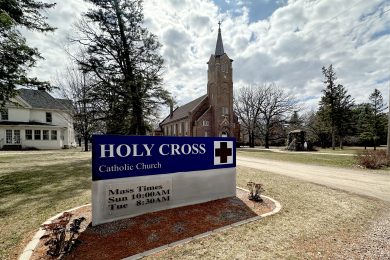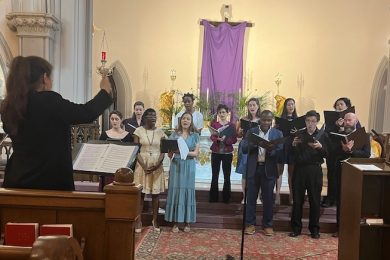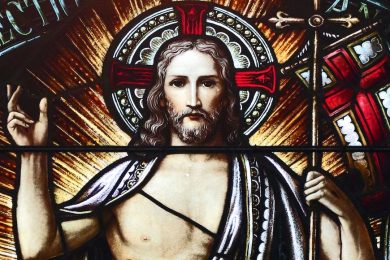WASHINGTON (CNS) — A pair of grants totaling $800,000 from the Catholic Campaign for Human Development will boost Native American access to credit and empower low-income people in the southeastern U.S. to respond to the impact of climate change.
CCHD is the U.S. bishops’ domestic anti-poverty program. The grants were announced July 22.
The Native Community Development Financial Institutions Network, or NCN, received $300,000 under CCHD’s Strategic National Grant program while the Direct Action and Research Training Center in Miami Shores, Florida, was awarded $500,000.
The grant to NCN will allow the network to help low-income Native American households nationwide maintain access to credit. Network members total more than 60 Native Community Development Financial Institutions, called CDFIs, in 27 states. These institutions serve communities without full access to banking services.
Ralph McCloud, CCHD executive director, said the funds will help bolster Native American-owned businesses, which have been disproportionately affected by the coronavirus pandemic.
“A lot of the businesses are struggling. Native American-owned businesses are closing,” McCloud told Catholic News Service.

NCN estimated that about 89% of businesses its members serve face closing within six months because of the inability to access credit to weather the financial storm that has emerged from the pandemic. The vast majority of local CDFIs were deemed ineligible to assist clients with federal support, such as the Paycheck Protection Program, NCN officials said.
The Paycheck Protection Program allowed small businesses to secure federal Small Business Administration loans through banks to prevent laying off employees as the pandemic grew earlier this year.
“We are fortunate to partner with CCHD through these grim times of the COVID pandemic. Native CDFIs across the country are on the front lines of the economic downturn and we appreciate our partners who support these important institutions,” Peter Upton, NCN chairperson, said in a statement.
“NCN looks to empower our members so we will emerge from this storm to continue to serve our communities,” Upton said.
Auxiliary Bishop David G. O’Connell of Los Angeles, chairman of the U.S. bishops’ Subcommittee on the Catholic Campaign for Human Development, said the grant will bolster the work of the financial network servicing Native American families and communities as they recover from the pandemic.
The grant to the Direct Action and Research Training Center, or DART, will allow the organization to work with low-income people to overcome the impact and address the root causes of climate change for five years, McCloud said.
Called “Caring for Creation, Caring for Community,” the project will help DART staff members throughout the southeastern U.S. work with local groups to identify the effects of a changing environment, empower low-income and minority residents to address those effects, and raise public awareness of how poor and marginalized communities are the most affected by climate change.
McCloud said the effort will begin with listening sessions that can build a base of support for concrete action to address climate change.
“The voices of those folk, nobody’s listening to them,” McCloud told CNS. “This will help amplify their voices.”
Bishop O’Connell said the grant will help put into action Pope Francis’ 2015 encyclical, “Laudato Si’, on Care for Our Common Home.”
“The adverse effects of climate change devastate poor communities around the country and with this project, CCHD and DART will seek to live out the call of Pope Francis to respond to the ‘cry of the earth and the cry of the poor,'” he said in a statement.
Archbishop Thomas G. Wenski of Miami, who has worked with DART for more than 30 years on issues such as violence reduction, affordable housing, juvenile justice reform and transportation needs, welcomed the award.
“The DART proposal … is a needed organizing effort to better engage people from low-moderate income communities in identifying and addressing the impacts of climate change in local communities,” Archbishop Wenski said in a statement.
CCHD established its Strategic National Grant program to address urgent regional or national issues affecting low-income and marginalized communities. Such grants are awarded in larger amounts, allowing community organizations to better address a vital issue.
The grants were approved by the subcommittee during a virtual meeting June 9.




















